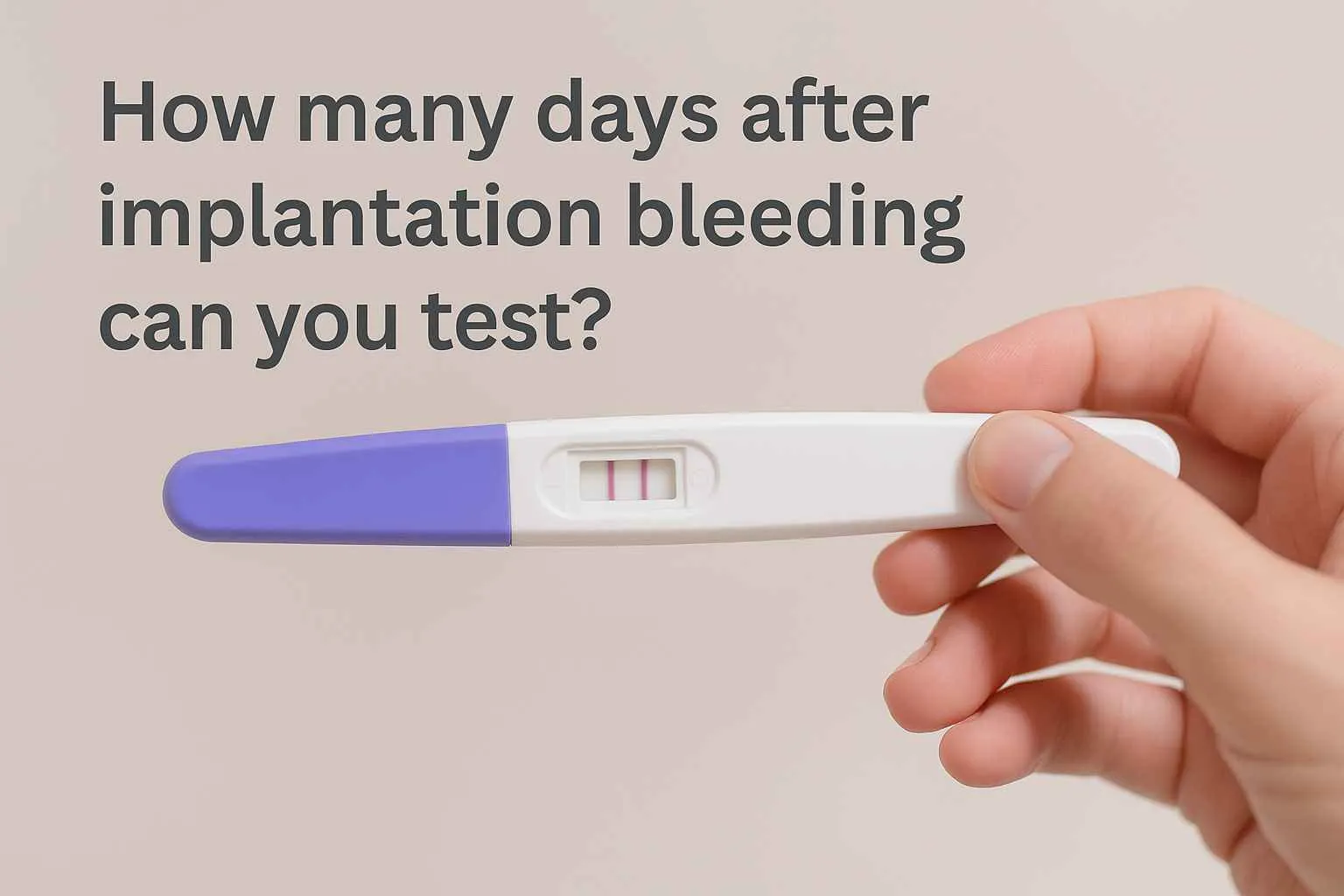Perinatology, or maternal-fetal medicine, is an obstetrics subspecialty dedicated to maternal and baby health prior to, during, and shortly after delivery. Perinatology treats high-risk pregnancies — instances where there are complications that can impact the mother, the fetus, or both. The specialty integrates cutting-edge science, empathetic care, and technology to deliver the best outcomes for both patients.
Pregnancy is one of the most significant experiences in life, but in some women, it has accompanying risks like pre-existing illness, twin pregnancies, or issues with fetal growth. In such cases, perinatologists — doctors skilled in maternal-fetal medicine — are crucial. They offer complete observation, prompt diagnosis, and customized treatment regimens that safeguard both maternal and fetal health.
Facilities such as Liv Hospital are world-renowned for their perinatology skills in Turkey, providing a combination of warm care, upscale amenities, and cutting-edge medical technology.
What Is Perinatology?
Perinatology is a medical discipline that intersects obstetrics, neonatology, and internal medicine. It aims at keeping the mother and the developing baby as healthy as possible during the pregnancy process. In contrast to normal obstetrics, perinatology deals with pregnancies with increased risks, such as:
- Advanced maternal age (older than 35 years)
- Multiple gestations (twins, triplets, etc.)
- Maternal conditions like hypertension, diabetes, or autoimmune diseases
- Fetal abnormalities detected on ultrasound
- Preterm labor, growth restriction, or placental pathology
Perinatology aims to identify and deal with such risks at an early stage by sophisticated screening and high-resolution imaging. Interdisciplinary teamwork by obstetricians, neonatologists, genetic counselors, and perinatologists ensures that each case is tackled with accuracy and compassion.
Role of a Perinatologist
A perinatologist (maternal-fetal medicine expert) closely collaborates with obstetricians, radiologists, and neonatologists to offer advanced diagnostic and therapeutic care. Their areas of focus include:
Antepartum Monitoring: Ongoing monitoring of mother and fetus by thorough ultrasounds, Doppler studies, and non-stress tests.
Genetic Counseling: Diagnosis of inherited conditions or chromosomal defects like Down syndrome, and family counseling based on genetic testing.
Prenatal Diagnostics: Involving advanced imaging modalities such as fetal echocardiogram, 3D/4D ultrasound, and amniocentesis.
Fetal Therapy: In some instances, conditions may be addressed while the baby is still in utero, such as blood transfusions or shunt placements.
High-Risk Delivery Management: Coordination of delivery complicated by preterm labor, cesarean delivery needs, or medical issues such as preeclampsia.
Their job doesn't end after birth, ensuring babies who require special care are smoothly transferred to neonatal specialists.
Conditions Treated in Perinatology
1. Gestational Diabetes:
A transient but dangerous condition that elevates blood sugar levels in pregnancy. Managed by diet, monitoring, and in some cases, medication, it prevents macrosomia (enlarged babies) and labor issues.
2. Preeclampsia:
High blood pressure and protein in urine after 20 weeks of pregnancy define preeclampsia, a condition that puts both mother and baby at risk if not properly managed. Perinatologists offer round-the-clock monitoring to prevent dangerous consequences.
3. Fetal Growth Restrictions:
When the fetus is undersize for the gestational age, perinatology teams check placental function and, if needed, prepare for early delivery.
4. Multiple Pregnancies:
Twins or triplets usually present with added health problems like preterm labor or growth discordance. Ultrasound checks and follow-ups are a must.
5. Congenital Anomalies:
Structural or genetic abnormalities can be screened by detailed prenatal scanning early on, enabling on-time decision-making and concerted delivery planning.
Advanced Diagnostic Techniques in Perinatology
Contemporary perinatology heavily depends upon sophisticated imaging and diagnostics to detect possible issues in advance. The most important technologies are:
3D and 4D Ultrasound: Providing detailed views of the forming fetus and placenta, enhancing detection of abnormalities.
Fetal Echocardiography: Advanced ultrasound that examines the fetal heart for congenital anomalies.
Amniocentesis and Chorionic Villus Sampling (CVS): Tests employed to analyze fetal chromosomes and diagnose genetic disorders.
Non-Invasive Prenatal Testing (NIPT): An easy blood test from the mother's sample to identify chromosomal disorders at a high level of accuracy.
These technologies, along with professional interpretation, enable early interventions and parental counseling with confidence.
The Significance of Multidisciplinary Care
Perinatology thrives on collaboration. Complicated pregnancies frequently need coordination among several medical disciplines — obstetrics, endocrinology, nutrition, and neonatology — to treat every dimension of maternal and fetal wellness.
At Liv Hospital's Perinatology Department, multidisciplinary treatment is fundamental. The hospital facilitates the use of state-of-the-art fetal monitoring units, neonatal intensive care units (NICU), and maternal health specialists who work together in close cooperation. This means that each step, from diagnosis to birth, follows the highest standards of international medicine.
The Emotional Side of Perinatology
Perinatologists know that pregnancy with risks comes with emotional uncertainty. Managing joy, fear, and hope is challenging. That's why holistic care is practiced in perinatology — treating not just physical but also emotional wellness.
Counseling and regular communication are a central component of the process. Experts assist expectant parents in comprehending each step and being actively engaged in decision-making. This sympathetic approach is especially vital when families are presented with unexpected news regarding fetal health.
Liv Hospital's Expertise in Perinatology
Liv Hospital is Turkey's most prestigious center for complete pregnancy care and high-risk obstetrics. Its perinatology department is equipped with the latest diagnostic technology and staffed by physicians trained internationally to handle complicated pregnancies. The synergy between medical skill, patient comfort, and moral care makes Liv Hospital a preferred destination for patients worldwide.
Some of the most important features of Liv Hospital's treatment protocol are:
- Customized pregnancy care in accordance with maternal and fetal risk profiles.
- Real-time fetal monitoring through advanced imaging and diagnostic equipment.
- Collaborative care between obstetricians, endocrinologists, neonatologists, and psychologists.
- Patient experience and safety, with a focus on comfort throughout pregnancy and delivery.
Liv Hospital's vision goes beyond medical treatment — it's about protecting life safely, intelligently, and compassionately.
Perinatology and Medical Tourism in Turkey
Turkey has achieved international acclaim as a venue for high-level medical treatment, providing foreign patients with top-quality services at reasonable prices. Perinatology clinics are ready to treat complicated pregnancies under the same quality standards as the best hospitals in Europe and the U.S.
For foreign families, Turkey's medical brilliance and cultural hospitality together provide the perfect destination for high-quality maternity treatment. Liv Hospital, in Istanbul, is exceptional with its provision of international patient coordination, interpreter assistance, and holistic mother-and-baby programs.
The Future of Perinatology
Perinatology advances with new developments in genetics, artificial intelligence, and medical imaging. In the near term, AI-augmented ultrasound interpretation will increase the accuracy of diagnostics. Genetic profiling will further individualize care, detecting risks and allowing for preventive measures even before conception.
Promising research areas include:
- Predictive algorithms to detect early preeclampsia
- Innovation in fetal therapy that corrects anomalies prenatally
- Increased application of stem cell and regenerative techniques to fix congenital disorders
With each technological improvement, perinatology will increasingly redefine maternal-fetal care — not just for survival, but for guaranteeing long-term quality of life for mother and child.
Recall These Key Points
Perinatology is not merely a medical specialty — it is an integrative strategy for supporting families through one of the most fragile moments in life. By intersecting advanced diagnostics, empathetic care, and individualized planning, perinatologists perform an indispensable service in ensuring safe motherhood and healthy births.
Places such as Liv Hospital capture the new vision of perinatology: bringing advanced medical science together with compassion and innovation. From managing high-risk pregnancies and monitoring the fetus to genetic screening and counseling, Liv Hospital's professional staff offers first-rate care that is intended to safeguard both mother and child.
At its core, perinatology honors life — preserving it, shielding it, and making sure it starts off healthy, confident, and with care.
كُتب بواسطة







